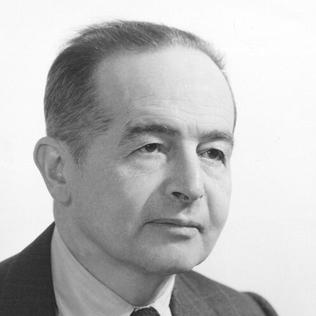Related Research Articles

John Donne was an English poet, scholar, soldier and secretary born into a recusant family, who later became a cleric in the Church of England. Under Royal Patronage, he was made Dean of St Paul's Cathedral in London (1621–1631). He is considered the preeminent representative of the metaphysical poets. His poetical works are noted for their metaphorical and sensual style and include sonnets, love poems, religious poems, Latin translations, epigrams, elegies, songs and satires. He is also known for his sermons.

The Lamentable Tragedy of Titus Andronicus, often shortened to Titus Andronicus, is a tragedy by William Shakespeare, believed to have been written between 1588 and 1593. It is thought to be Shakespeare's first tragedy and is often seen as his attempt to emulate the violent and bloody revenge plays of his contemporaries, which were extremely popular with audiences throughout the 16th century.

The Winter's Tale is a play by William Shakespeare originally published in the First Folio of 1623. Although it was grouped among the comedies, many modern editors have relabelled the play as one of Shakespeare's late romances. Some critics consider it to be one of Shakespeare's "problem plays" because the first three acts are filled with intense psychological drama, while the last two acts are comic and supply a happy ending.

The Royal Shakespeare Company (RSC) is a major British theatre company, based in Stratford-upon-Avon, Warwickshire, England. The company employs over 1,000 staff and opens around 20 productions a year. The RSC plays regularly in London, Stratford-upon-Avon, and on tour across the UK and internationally.

Fiona Shaw is an Irish film and theatre actress. She did extensive work with the Royal Shakespeare Company and the National Theatre, as well as in film and television. In 2020, she was listed at No. 29 on The Irish Times list of Ireland's greatest film actors. She was made an Honorary Commander of the Order of the British Empire (CBE) by Queen Elizabeth II in 2001.

Erich Auerbach was a German philologist and comparative scholar and critic of literature. His best-known work is Mimesis: The Representation of Reality in Western Literature, a history of representation in Western literature from ancient to modern times frequently cited as a classic in the study of realism in literature. Along with Leo Spitzer, Auerbach is widely recognized as one of the foundational figures of comparative literature.

Nicholas Rowe was an English dramatist, poet and miscellaneous writer who was appointed Poet Laureate in 1715. His plays and poems were well-received during his lifetime, with one of his translations described as one of the greatest productions in English poetry. He was also considered the first editor of the works of William Shakespeare.
Jonathan Stephen Firth is an English actor. He is best known for his roles in such noted British television productions as Middlemarch, Far from the Madding Crowd, and Victoria & Albert.

Coriolanus is a tragedy by William Shakespeare, believed to have been written between 1605 and 1608. The play is based on the life of the legendary Roman leader Gnaeus Marcius Coriolanus. Shakespeare worked on it during the same years he wrote Antony and Cleopatra, making them his last two tragedies.

The Second Battle of Fallujah, initially codenamed Operation Phantom Fury, Operation al-Fajr was an American-led offensive of the Iraq War that began on 7 November 2004 and lasted about six weeks.
Adrian Mitchell FRSL was an English poet, novelist and playwright. A former journalist, he became a noted figure on the British left. For almost half a century he was the foremost poet of the country's Campaign for Nuclear Disarmament movement. The critic Kenneth Tynan called him "the British Mayakovsky".

Ken Ludwig is an American playwright, author, screenwriter, and director whose work has been performed in more than 30 countries in over 20 languages. He has had six productions on Broadway and eight in London's West End. His 34 plays and musicals are staged throughout the United States and around the world every night of the year.
The Red Lion was an Elizabethan playhouse located in Whitechapel, just outside the City of London on the east side.

The Holy Sonnets—also known as the Divine Meditations or Divine Sonnets—are a series of nineteen poems by the English poet John Donne (1572–1631). The sonnets were first published in 1633—two years after Donne's death. They are written predominantly in the style and form prescribed by Renaissance Italian poet Petrarch (1304–1374) in which the sonnet consisted of two quatrains and a sestet. However, several rhythmic and structural patterns as well as the inclusion of couplets are elements influenced by the sonnet form developed by English poet and playwright William Shakespeare (1564–1616).
Priscilla "Scilla" Elworthy is a peace builder, and the founder of the Oxford Research Group, a non-governmental organisation she set up in 1982 to develop effective dialogue between nuclear weapons policy-makers worldwide and their critics, for which she was nominated three times for the Nobel Peace Prize. She served as its executive director from 1982 until 2003, when she left that role to set up Peace Direct, a charity supporting local peace-builders in conflict areas. In 2003 she was awarded the Niwano Peace Prize. From 2005 she was adviser to Peter Gabriel, Desmond Tutu and Richard Branson in setting up The Elders. She is a member of the World Future Council and in 2012 co-founded Rising Women Rising World, a community of women on all continents who take responsibility for building a world that works for all.
Thomas Bancroft was a minor seventeenth-century English poet, He wrote a number of poems and epigrams addressed to notable people into which he embedded clever puns.
Mimesis: The Representation of Reality in Western Literature is a book of literary criticism by Erich Auerbach, and his most well known work. It was written in German between 1942 and 1945, while Auerbach was teaching in Istanbul, Turkey, where he fled after being ousted from his professorship in Romance Philology at the University of Marburg by the Nazis in 1935, it was first published in Switzerland in 1946 by A. Francke Verlag, with an English translation by Princeton University Press following in 1953, since when it has remained in print.

Pammal Vijayarangam Sambandham Mudaliar (1873–1964), who has been described as "the founding father of modern Tamil theatre", was a playwright, director, producer and actor of the late nineteenth- and early twentieth centuries. He was a recipient of the civilian honour of the Padma Bhushan.

As You Like It is a pastoral comedy by William Shakespeare believed to have been written in 1599 and first published in the First Folio in 1623. The play's first performance is uncertain, though a performance at Wilton House in 1603 has been suggested as a possibility.
Into Thy Hands is a 2011 play by Jonathan Holmes on the life of John Donne and in particular his actions during 1611 and his relationships with those involved in translating the King James Version. Its title quotes Psalm 31 and Luke 23:46, from the sayings of Jesus on the cross.
References
- ↑ "Directory of Shakespearean Theses: 1990-2006. Compiled by Thomas Larque". Archived from the original on 5 July 2008. Retrieved 10 August 2008.
- ↑ Holmes, Jonathan (2004). Merely Players?: Actors' Accounts of Performing Shakespeare. Routledge. ISBN 978-0-415-31957-7.
- ↑ Holmes, Jonathan; Streete, Adrian (2005). Refiguring Mimesis: Representation in Early Modern Literature. Univ of Hertfordshire Press. ISBN 978-1-902806-35-8.
- ↑ "Login". Archived from the original on 8 April 2007.
- ↑ Billington, Michael (3 June 2011). "Into Thy Hands – review". The Guardian.
- ↑ "Login". Archived from the original on 17 May 2011.
- ↑ "Search results". YouTube .
- ↑ "Login". Archived from the original on 15 June 2011.
- ↑ "Login". Archived from the original on 31 May 2010.
- ↑ "Login". Archived from the original on 4 June 2011. Retrieved 27 September 2024.